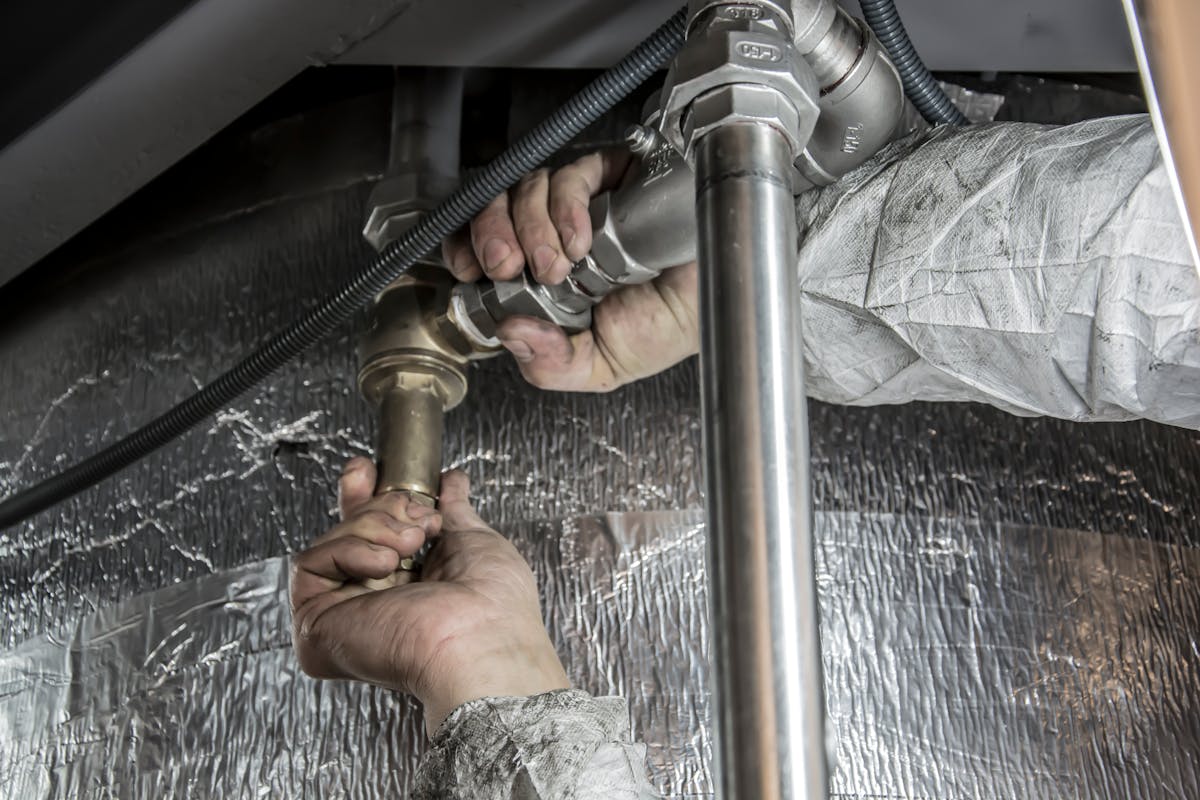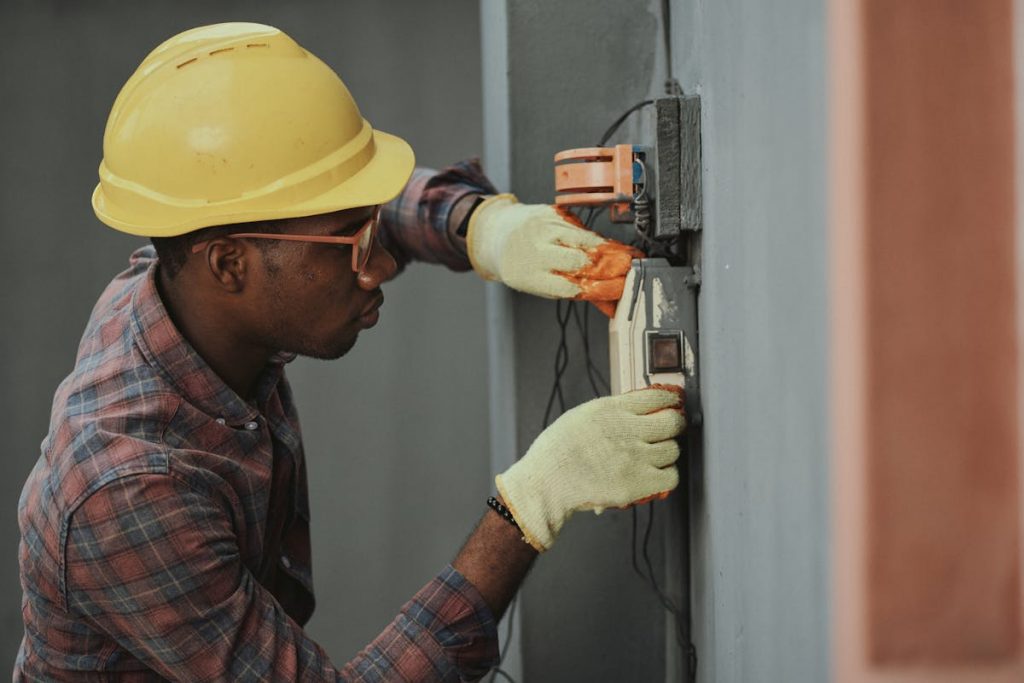- Assess and plan the repiping project by evaluating the condition of existing pipes and planning for downtime.
- Hire a reputable, certified professional plumbing service with experience in commercial repiping projects.
- Choose durable, long-lasting materials that meet local codes and are suitable for commercial properties.
- Budget carefully, including obtaining detailed estimates and setting aside funds for unforeseen issues.
- Maintain and monitor the new piping system, establishing a maintenance schedule and encouraging prompt reporting of issues.
When it comes to the extensive undertaking of repiping a commercial property, it’s not just about swapping old pipes for new ones. It’s an investment in the functionality, safety, and longevity of your property’s plumbing infrastructure – an invisible but vital foundation that keeps businesses running smoothly. This comprehensive guide tailored for commercial property owners will unravel five indispensable tips for a successful and stress-free repiping project.
Assessment and Planning
Before any wrench is turned, a thorough assessment of your property’s existing piping is crucial. This evaluation should be as extensive as possible, considering the age of the building and the current condition of the piping.
Evaluate Psychical Piping:
Look for visible signs of wear, such as cracks, stains, or corrosion. Such signs often signal the need for immediate repiping. From the basement to the attic, visually inspect all exposed piping and note any observable issues.
Check During Low-Use Hours:
Conduct checks during low-use hours when potential issues might be less noticeable, especially if your commercial space operates at high capacity throughout regular business hours. Doing this can help identify any underlying problems that might not be immediately visible.
Plan for Downtime:
Consider planning the repiping during slow business periods or the off-hours of your establishment to minimize disruptions. Because repiping is a complex and time-consuming process, planning for downtime in advance is essential so that your business can continue operations with minimal interruption.
Coordinate with Tenants:
If you have tenants, communication is key. Keep them updated with the assessment findings and the tentative repiping schedule.
Hire a Professional Plumbing Service
Commercial repiping is not a DIY project. It demands the expertise of certified professionals well-versed in the complexities of commercial plumbing.
Use an Established Company:
Do not compromise on the reputation of the plumbing service. An established company will likely have experience with commercial repiping. By hiring a reputable company, you can trust that the job will be done correctly and according to industry standards.
Insist on Certifications:
Ensure the plumbing contractors are certified, and their licensure is current. Associations like the American Society of Plumbing Engineers are valuable resources to find reputable professionals. You may ask for references and thoroughly check them before signing on with the service.
Ask About Equipment:
Inquire about the equipment they plan to use. For a commercial project, the plumbing service should have various tools specific to various pipe diameters and materials. For example, a pipeline geometry inspection tool is essential for determining the extent of damage and blockages, while a hydrojetting machine can clear out any clogs or debris. Depending on the size of your property, equipment such as a trenchless pipe replacement machine may also be necessary.
Material Selection
Selecting the right type of pipes for your commercial property is a critical decision with long-term implications.
Opt for Durability:
Commercial properties often handle heavier loads and require thicker, more durable piping materials. Galvanized steel, copper, and new-generation plastics like PEX or CPVC are common choices for commercial applications.
Consider Life Expectancy:
Balance upfront costs with the expected lifespan of the materials. While copper may be more expensive, it typically lasts longer than many alternatives.
Research Local Codes and Standards:
Each municipality has its own set of building codes. Ensure that the materials you select meet these requirements, especially regarding fire and safety standards.
Budgeting and Cost Estimation
Repiping is a substantial financial investment but should be seen as a future-proofing measure for your commercial property.
Establish a Realistic Budget:
The costs for repiping can be variable. Consider the size of your property, the type of materials, and the labor involved. When in doubt, it is better to overestimate than under budget.
Get Detailed Cost Estimates:
Obtain multiple quotes and ensure they include materials, labor, and any potential additional costs, such as permits or post-installation inspections.
Plan for Contingencies:
Allocate a contingency fund to cover unexpected issues that may surface during repiping, especially in older properties prone to surprises.
Maintenance and Follow-Up
Completing the repiping of your commercial property is not the end of the story. Ongoing maintenance is crucial to the long-term health of your pipes and the plumbing system.
Implement a Maintenance Schedule:
Work with your professional plumbing service provider to establish a regular maintenance schedule, including inspections and necessary repairs.
Monitor for Post-Repiping Issues:

Even the best repiping job can occasionally be followed with minor leaks or issues. Keep a watchful eye on your system and notify the plumbing service immediately if you observe any abnormalities.
Encourage Tenant Involvement:
Empower your tenants or employees to report any issues promptly so they can be addressed before escalating into significant problems.
Repiping a commercial property is a significant undertaking that requires meticulous planning, professional assistance, and proactive follow-up. By following these five tips, you’ll be well-prepared to take on this crucial task, ensuring the plumbing infrastructure of your commercial space is nothing but a silent partner in your business’s success.
Remember, while repiping may seem like a one-time task, it is an ongoing commitment to the health and stability of your commercial property. By treating it with the attention and priority it deserves, you secure the working conditions for your operations today and guarantee a sound investment that will serve your business for years to come.

